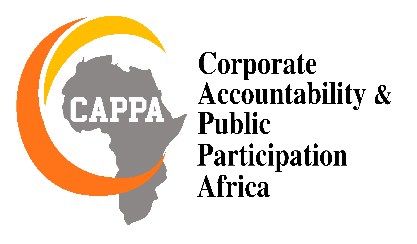Today, as the global community acknowledges the occasion of World Health Day (WHD), Corporate Accountability and Public Participation Africa (CAPPA) has renewed its call for governments at all levels to prioritise adequate healthcare funding and the adoption of healthy food policies to curb the exposure of Nigerians to unhealthy diets, which are aggressively promoted by the sugary drinks and ultra-processed industry and are worsening the country’s non-communicable diseases (NCDs) burden.
The 2025 WHD theme Healthy Beginnings, Hopeful Futures, focuses on the health of mothers and babies – the foundation of healthy families and hopeful futures. CAPPA noted that this year’s reflection provides an opportunity for the government to review and strengthen its healthy food systems so it can guarantee Nigerians’ access to nutritious food.
In a statement to mark the occasion, CAPPA referenced data showing that Nigeria’s health indicators are in dire straits, with cases of NCDs, malnutrition, infectious diseases, and maternal mortality being some of the worst in the world.
“Every day, many parents – misled by the ultra-processed food industry – inadvertently make food choices high in fat, salt or sugar (HFSS) that harm their children’s health,” said Akinbode Oluwafemi, Executive Director, CAPPA.
“This industry aggressively promotes the excessive consumption of nutrient-poor, calorie-dense products – that it presents as foods – thus exacerbating Nigeria’s already troubling prevalence of non-communicable diseases like obesity, diabetes, hypertension, and cardiovascular conditions, and placing additional strain on the country’s healthcare system.
“All of these are further compounded by the alarming exodus of healthcare professionals, and poor state of health infrastructure in the country, largely because of poor funding of the sector,” Oluwafemi added.
The statement noted that the federal government allocated ₦2.48 trillion to the health sector in the 2025 budget, which is 5.18 per cent of the total ₦47.9 trillion budget. While this is an improvement compared to the 2024 budgetary allocation, it falls significantly short of the World Health Organization’s (WHO) recommendation of 13 per cent and the African Union’s Abuja Declaration target of 15 per cent. The Abuja Declaration, signed in 2001, commits African Union member states to allocate at least 15 per cent of their national budgets to the health sector.
Meanwhile, the CAPPA statement commended the Nigerian government and public health authorities, for launching the National Guideline for Sodium Reduction, urging them to view such policies as low-hanging fruits with high yields in the race to protect public health. The Guideline, a policy designed to tackle excessive salt consumption and reduce the growing burden of hypertension and cardiovascular diseases in the country, was launched in Abuja on March 26, 2025, by the federal government and its local and international partners, including Resolve to Save Lives, Global Health Advocacy Incubator (GHAI), Network for Health Equity and Development (NHED) and CAPPA.
To guarantee the effectiveness of the Guidelines, CAPPA called on the National Agency for Food Drug Administration and Control (NAFDAC) to expedite action on formulating a suitable regulation that will ensure the enforcement of sodium (salt) targets in processed and packaged foods.
In addition, the NGO cited the severe danger to public health posed by excessive consumption of Sugar-Sweetened Beverages (SSBs) and encouraged the government to adopt WHO’s recommendation that countries raise taxes on SSBs to increase the retail prices by at least 20 percent in order to reduce consumption and improve public health, and as part of a comprehensive approach to preventing obesity and diet-related NCDs. CAPPA specifically urged the government to increase the current excise duty rate of N10 per liter on non-alcoholic, carbonated, and sweetened beverages in the country to at least N130 per liter, emphasising that such an adjustment is essential to achieving the intended health benefits of the policy.
Furthermore, the NGO spotlighted the rising debilitating NCDs caused by tobacco use as one of the problems that can be solved by healthy food policies and increased allocation to the Tobacco Control Fund (TCF).
“Tobacco use is public health’s number one enemy responsible for millions of preventable deaths worldwide, including that of thousands of Nigerians yearly. While we applaud the government for increasing the allocation to the TCF to N13 million in this year’s budget, we insist that N13m remains grossly insufficient compared to the level of funding required for the effective implementation of the National Tobacco Control Act (NTCA) 2015 and protection of Nigerians from the multifaceted harms of tobacco use” Oluwafemi said.
CAPPA called on the federal government to increase the allocation to the TCF to a minimum of N300 million.
“As things stand, Nigeria is off track to meet global survival targets by 2030, but by implementing healthy food policies, the country stands a chance of giving its people hope for a better future,” the statement added.

